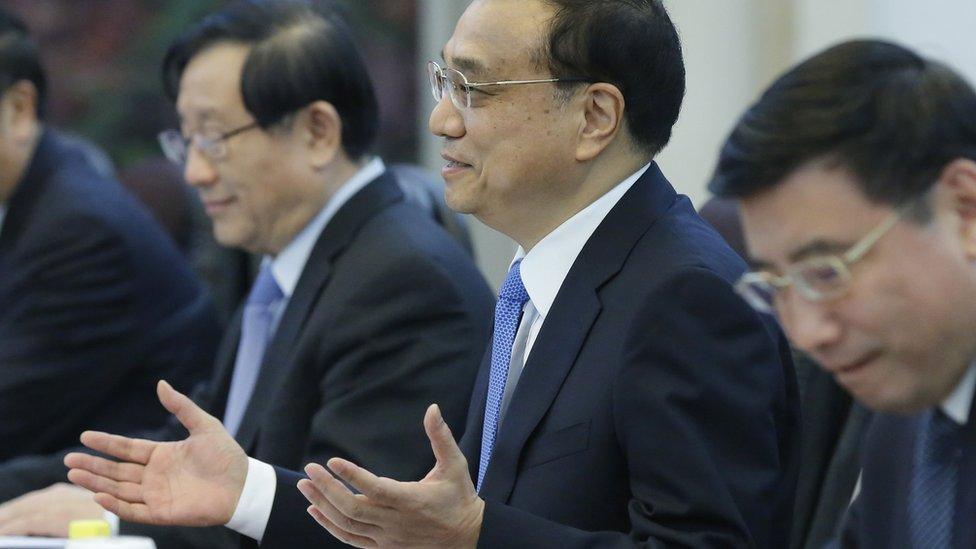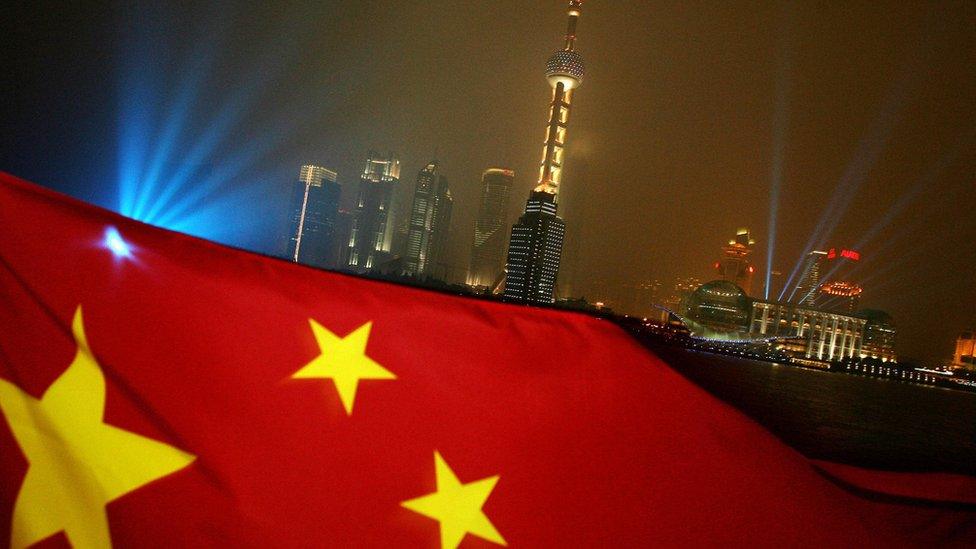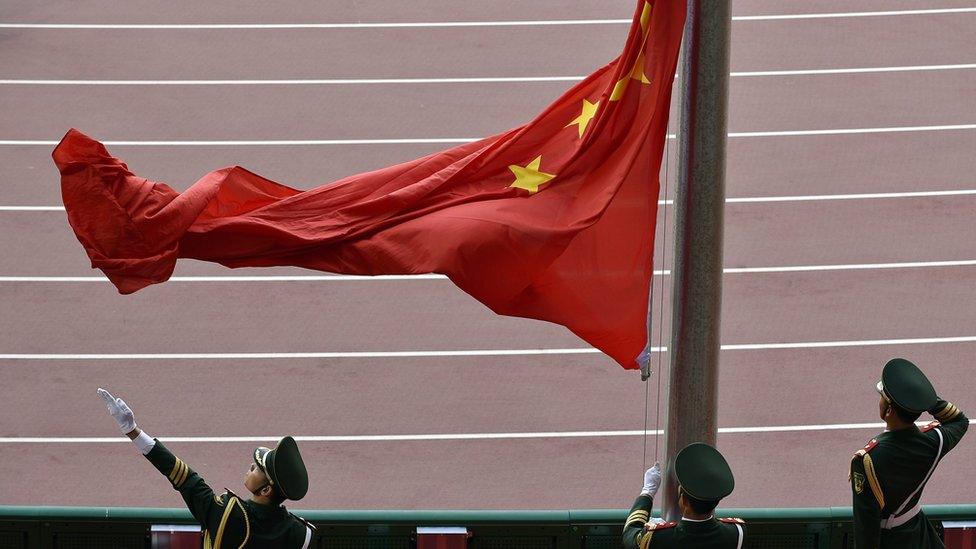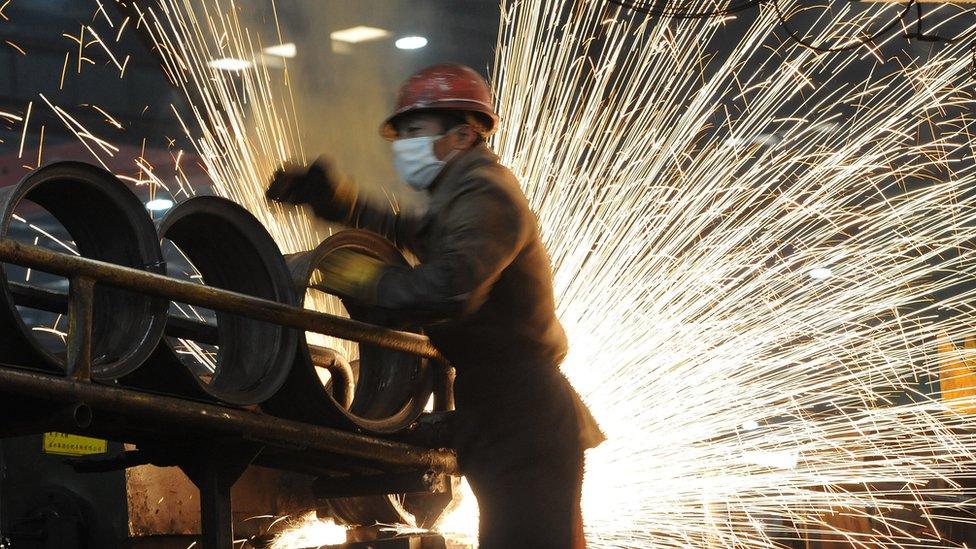China's growth mantra becoming hard sell
- Published
- comments
China in transition: Can its workforce move beyond the factory floor?
It can't be easy being China's premier these days.
Gone are the times when China could flaunt its success on the international stage, touting its ability to grow its economy at a pace the rest of the world envied.
All Chinese leaders can do these days is to try to defend their track record, and attempt to reassure the financial community they know what they're doing when it comes to dealing with the risks the world's second biggest economy is facing.
And that's exactly what Premier Li Keqiang did during his keynote speech at the Boao Forum.
He sought to address all of the concerns that have been raised about his country's economy in recent months - from worries about an economic slowdown to the volatility in the Chinese currency, the yuan.

Premier Li Keqiang, centre, says the country has enough policy tools left to deal with the risks its economy is facing
He also spoke about whether China can manage its difficult transition from a manufacturing and investment-led economy to one that's more dependent on services and innovation.
Mr Li admitted that the country is going through a difficult time, but he also pointed to the troubles the global economy is facing and talked of how those troubles are impacting China's fortunes.
Against this backdrop, the premier noted what an achievement it was for China's massive economy to grow at between 6.5% and 7%.
He said the country had enough policy tools left to deal with the risks its economy is facing, and that it has the solutions to fix the problems with debt and over-capacity.
A lot of the same stuff that we have heard before, frankly, and often from the premier himself at other international forums. It's become the mantra for China. But increasingly it is becoming a hard sell.
Today's address was very much about putting on a good face for the world - though it's doubtful whether the premier's words will be enough to convince those who have real concerns about China's economic future.
- Published22 March 2016
- Published9 March 2016
- Published8 March 2016

- Published2 March 2016

- Published3 March 2016
- Published1 March 2016
